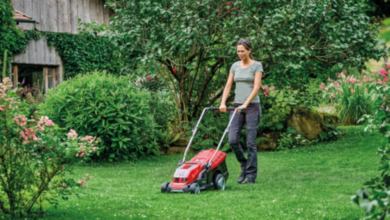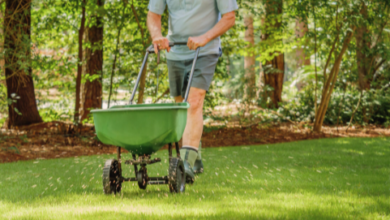Should You Trust Movers in Virginia? Common Scams and How to Avoid Them

Understanding the Landscape of Movers in Virginia
The Regulatory Environment for Virginia Movers
Moving companies in Virginia operate within a specific regulatory framework designed to protect consumers. The Department of Motor Vehicles (DMV) oversees household goods carriers, setting rules for licensing, insurance, and operational standards. It’s important to know that not all companies offering moving services are legitimate, so understanding these regulations is key.
- Companies must register with the DMV.
- They need to maintain adequate insurance coverage.
- They have to follow specific guidelines for estimates and contracts.
The regulatory environment aims to create a fair and transparent market. However, some companies try to skirt the rules, which is why due diligence is so important.
Identifying Licensed and Insured Movers in Virginia
Making sure your movers in Virginia are properly licensed and insured is a must. Licensing shows that the company has met the state’s requirements to operate legally. Insurance protects you if your belongings are damaged or lost during the move. You can usually verify a mover’s license through the Virginia DMV website. Don’t just take their word for it; always check!
- Ask for their DMV license number.
- Verify the license number on the DMV website.
- Confirm their insurance coverage and what it includes.
The Importance of Local Reputation for Virginia Movers
A mover’s local reputation can tell you a lot about their reliability and service quality. Companies with a strong local presence often rely on word-of-mouth referrals and repeat business. Check online reviews, ask for references, and see if they have a physical office in the area. A good reputation is usually earned over time through consistent, quality service. It’s a good idea to look beyond just the big national chains and consider local movers in Virginia with established roots in the community.
- Read online reviews on sites like Yelp and Google.
- Ask for references from past customers.
- Check if they have a local office or physical address.
Common Scams Targeting Movers in Virginia
Moving can be stressful, and unfortunately, some companies take advantage of that. It’s important to be aware of the common scams that target people moving in Virginia so you can protect yourself and your belongings. Let’s look at some of the most frequent issues.
The Bait-and-Switch Pricing Tactic
This is a classic scam. You get a low estimate initially, which seems great. Then, on moving day, or even after your stuff is loaded, the movers say the price is actually much higher. They might claim your inventory was underestimated, or that there were unexpected difficulties. The initial low price was just bait to get your business.
- They might add extra fees that weren’t in the original estimate.
- The movers might claim you have more items than you said.
- They could say the move took longer than expected due to traffic or other issues.
Holding Goods Hostage for More Money
This is a really awful situation. The movers have your belongings loaded on their truck, and then they demand more money than agreed upon. They refuse to deliver your stuff until you pay the inflated price. You’re basically held hostage, because what are you going to do? It’s a terrible position to be in.
This is why it’s so important to get everything in writing beforehand. A detailed inventory and a binding estimate can help prevent this. Also, trust your gut. If something feels off, it probably is.
Unlicensed Operators and Their Risks
Hiring an unlicensed mover is a huge risk. These companies aren’t regulated, so they can basically do whatever they want. They might not have insurance, so if your stuff gets damaged or lost, you’re out of luck. They might also be more likely to engage in other scams.
Here’s a quick look at some potential problems:
| Risk | Description |
| Lack of Insurance | If your items are damaged, you won’t be compensated. |
| Unqualified Movers | Movers may not have the experience or equipment to handle your belongings safely. |
| Higher Scam Risk | Unlicensed operators are more likely to engage in fraudulent practices. |
| No Legal Recourse | It’s harder to pursue legal action if something goes wrong. |
- They might damage your furniture and not pay for repairs.
- They could simply disappear with your belongings.
- You might have no way to get your money back if they don’t deliver as promised.
Red Flags When Choosing Movers in Virginia
Estimates That Are Too Good to Be True
If a moving estimate seems unbelievably low, it probably is. Movers who offer significantly lower prices than their competitors might be cutting corners or planning to inflate the price later. It’s a classic trick to lure you in, only to hit you with hidden fees or extra charges once your belongings are already on the truck. Always be wary of estimates that seem too good to be true; they often are.
Lack of Physical Address or Professional Website
Reputable moving companies usually have a physical office and a professional website. If a mover only provides a phone number or uses a generic email address, that’s a big red flag. A legitimate business will have a verifiable address and a website that includes information about their services, licensing, and contact details. No address? No website? Proceed with extreme caution.
Demanding Large Upfront Deposits
Most moving companies require a small deposit, but demanding a large upfront payment (like over 20% of the estimated cost) is a warning sign. It could indicate that the company is struggling financially or planning to take your money and disappear. It’s best to work with movers who require minimal upfront payment and allow you to pay the balance upon delivery.
A good rule of thumb is to avoid movers who pressure you into paying a large sum before they even load your stuff. It’s your money, and you should have control over it until the service is completed to your satisfaction.
Here’s a quick guide to deposit sizes:
| Deposit Size | Risk Level |
| 0-10% | Low |
| 10-20% | Moderate |
| 20%+ | High |
Verifying the Credibility of Movers in Virginia
It’s easy to get caught up in the excitement of moving, but before you hand over your belongings to just anyone, it’s super important to do some digging. You want to make sure you’re dealing with a legitimate company that will treat your stuff with care and not try to rip you off. Here’s how to check them out:
Checking Reviews and Testimonials for Virginia Movers
Online reviews are your friend! See what other people are saying about their experiences with different moving companies. Look beyond just the star rating; read the actual comments to get a feel for what went well (or didn’t). Pay attention to patterns – are there multiple complaints about damaged items, late arrivals, or unexpected fees? A few bad reviews aren’t necessarily a deal-breaker, but a consistent stream of negative feedback is a major red flag. Check multiple sites like Yelp, Google Reviews, and the Better Business Bureau (BBB).
Confirming Licensing with State Authorities
Virginia requires movers to be licensed. Don’t just take the company’s word for it; verify their license yourself! The Virginia Department of Motor Vehicles (DMV) is usually the place to check. A legitimate license shows they’ve met certain requirements and are operating legally. Unlicensed movers are a huge risk – they may not have insurance, and you’ll have little recourse if something goes wrong.
Obtaining Multiple Written Estimates
Never settle for the first estimate you get. Get at least three written estimates from different moving companies. This gives you a good baseline for what the move should cost and helps you spot any outliers. Be wary of estimates that are significantly lower than the others – it could be a sign of a scam. Make sure the estimates are detailed and include all the services you need. A reputable mover will come to your home to assess your belongings and provide an accurate estimate. Don’t accept estimates over the phone or online without a proper assessment.
Getting multiple estimates isn’t just about finding the cheapest price; it’s about understanding the different services offered and the level of professionalism each company provides. Pay attention to how responsive they are, how clearly they explain their process, and how willing they are to answer your questions. These are all indicators of a trustworthy mover.
Protecting Yourself During the Moving Process
Documenting Your Belongings Thoroughly
Before the movers even set foot in your house, take the time to create a detailed inventory of everything you’re moving. This isn’t just about making a list; it’s about protecting yourself. Take photos or videos of your items, especially anything valuable or fragile. Note any existing damage, no matter how small. This documentation will be invaluable if something gets lost or damaged during the move. I’m telling you, it’s worth the effort. Trust me on this one.
- Create a spreadsheet or use a moving app to catalog each item.
- Label boxes clearly with their contents and the room they belong in.
- Keep a separate record of high-value items like jewelry or electronics.
Understanding Your Rights as a Consumer
Did you know that as a consumer, you have rights when it comes to moving? It’s true! Familiarize yourself with the regulations set forth by the Federal Motor Carrier Safety Administration (FMCSA) and any relevant Virginia state laws. These laws dictate things like liability for lost or damaged goods, dispute resolution processes, and what information movers are required to provide you. Knowing your rights can help you spot a scam and protect yourself if something goes wrong. It’s like having a secret weapon.
Avoiding Blank or Incomplete Contracts
Never, ever sign a blank or incomplete moving contract. This is a huge red flag and a recipe for disaster. Make sure every section of the contract is filled out completely and accurately before you sign it. Pay close attention to the estimated cost, the delivery schedule, and the mover’s liability coverage. If anything seems unclear or suspicious, ask questions and get clarification in writing. Don’t be afraid to negotiate terms that you’re not comfortable with. It’s your move, after all!
A complete and detailed contract is your best defense against moving scams. It outlines the terms of the agreement and provides a legal basis for resolving disputes. Don’t skip this step!
What to Do If You Suspect a Scam with Movers in Virginia
It’s a terrible feeling when you think you’ve been scammed, especially during a stressful time like moving. If you suspect your Virginia movers are running a scam, don’t panic. There are steps you can take to protect yourself and potentially recover your losses. It’s important to act quickly and document everything.
Reporting Fraudulent Moving Companies
First, gather all your evidence. This includes your contract, any estimates, inventories, and communication records (emails, texts, etc.). Report the company to the Better Business Bureau (BBB) and the Virginia Department of Professional and Occupational Regulation (DPOR). DPOR is the agency that licenses movers in Virginia, and they can investigate and take disciplinary action against companies that violate regulations.
Also, consider filing a complaint with the Federal Motor Carrier Safety Administration (FMCSA) if the move involved crossing state lines. The FMCSA has the authority to fine and shut down interstate moving companies that engage in fraudulent practices. Don’t forget to leave detailed reviews online on sites like Yelp and Google Reviews to warn others about your experience.
Seeking Legal Counsel for Moving Disputes
Sometimes, reporting to agencies isn’t enough, especially if you’ve suffered significant financial losses or damage to your belongings. In these cases, it might be worth consulting with an attorney who specializes in moving disputes or consumer protection law. A lawyer can review your contract, assess your legal options, and help you pursue a claim against the moving company. This could involve negotiating a settlement, filing a lawsuit in small claims court, or participating in mediation.
Contacting Consumer Protection Agencies
Consumer protection agencies are there to help you when you’ve been wronged by a business. In Virginia, you can contact the Virginia Office of the Attorney General’s Consumer Protection Section. They can provide information about your rights, investigate complaints, and take legal action against companies that engage in unfair or deceptive practices.
Remember, you’re not alone. Many people fall victim to moving scams every year. By taking swift action and reporting the fraudulent activity, you can help protect yourself and prevent others from becoming victims. Don’t hesitate to seek help from the resources available to you.
Choosing Reputable Movers in Virginia for a Smooth Move
The Benefits of Vetted and Experienced Movers
Choosing the right moving company can make all the difference. Opting for vetted and experienced movers means you’re choosing peace of mind. It’s about more than just getting your stuff from point A to point B; it’s about trusting someone with your possessions and knowing they’ll handle them with care. Think about it: years of experience often translate to fewer mistakes, better problem-solving skills, and a smoother overall process. Plus, they’ve likely seen it all before, so they’re prepared for unexpected challenges.
Transparent Communication with Your Moving Company
Communication is key. You want a moving company that’s upfront and honest from the start. This means:
- Clear explanations of all costs involved.
- Prompt responses to your questions and concerns.
- Regular updates throughout the moving process.
A good moving company will keep you informed every step of the way. They’ll explain their processes, answer your questions honestly, and be available to address any concerns that arise. This level of transparency builds trust and helps prevent misunderstandings.
For example, if you’re looking at “movers chester va” or a “commercial moving company“, make sure they clearly outline their services and pricing structure.
Ensuring Proper Insurance Coverage
Insurance is a must. Accidents happen, and you want to be protected if something goes wrong. Make sure your moving company has adequate insurance coverage to protect your belongings during the move. Ask about their insurance policies and what they cover. Understand the difference between basic coverage and full value protection. Don’t be afraid to ask questions and get clarification on anything you’re unsure about. It’s better to be safe than sorry when it comes to protecting your valuables.
| Coverage Type | Description of the benefits of vetted and experienced movers, transparent communication, and proper insurance coverage. These elements are key to a successful and stress-free move.
Wrapping Things Up: Moving Smart in Virginia
So, what’s the big takeaway here? Moving can be a headache, no doubt about it. But when you’re looking for movers in Virginia, you don’t have to just cross your fingers and hope for the best. There are definitely some shady characters out there, trying to pull a fast one. The good news is, with a little bit of homework and knowing what to look out for, you can totally avoid those bad situations. Just take your time, ask questions, and don’t be afraid to walk away if something feels off. Your stuff, and your peace of mind, are worth it.
Frequently Asked Questions
How can I tell if a moving company in Virginia is legitimate?
You can check if a moving company is licensed and insured by looking them up on the Virginia Department of Motor Vehicles (DMV) website. They have a special section for movers. Also, good movers usually show off their licenses and insurance info on their own websites or in their offices.
What is a ‘bait-and-switch’ scam in moving?
A ‘bait-and-switch’ scam is when a mover gives you a really low price at first to get your business. But then, after they have your stuff, they suddenly demand a much higher price, saying there were ‘unexpected’ costs. It’s a tricky way to get more money out of you.
What are the best ways to avoid moving scams?
To avoid getting ripped off, always get at least three written estimates from different movers. Make sure they come to your home to see your stuff before giving a price. Don’t pay a huge deposit upfront, and never sign a blank contract. Also, check what other people say about them online.
Is it normal for movers to ask for a large upfront payment?
If a mover asks for all the money before they even start moving your things, or if they want a really big chunk of money upfront, that’s a big warning sign. Most good movers only ask for a small deposit, or they let you pay when the job is done.
What should I do if I suspect a moving company has scammed me?
If you think you’ve been scammed, first contact the Virginia Department of Motor Vehicles (DMV) or the Virginia State Corporation Commission (SCC). You can also report it to the Federal Motor Carrier Safety Administration (FMCSA) if it’s an interstate move. And don’t forget to tell your local consumer protection office.
Do I really need insurance when hiring movers?
Yes, it’s super important! Moving insurance protects your belongings if they get lost, broken, or damaged during the move. Your regular home insurance might not cover everything, so getting extra moving insurance from the company or a third party is a smart move.




